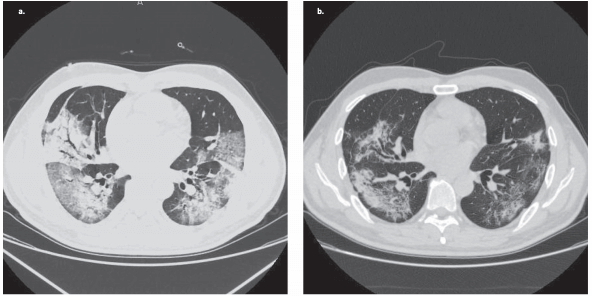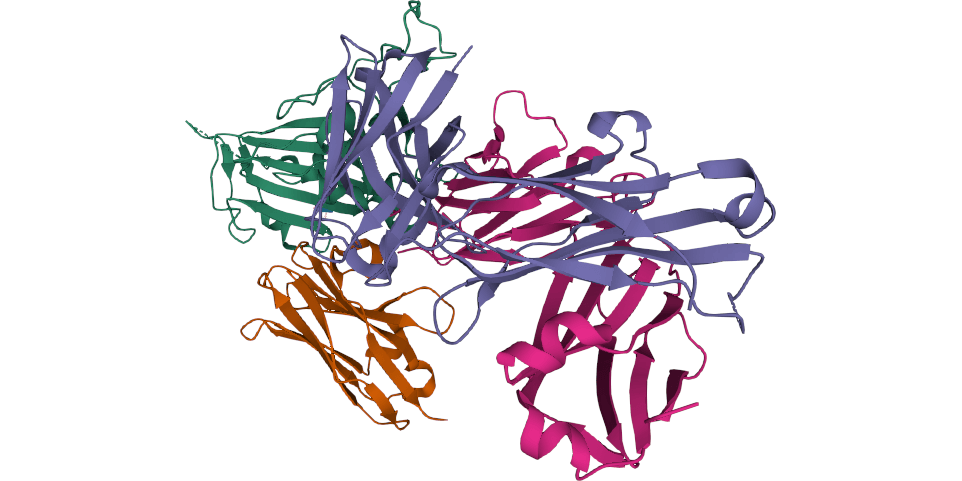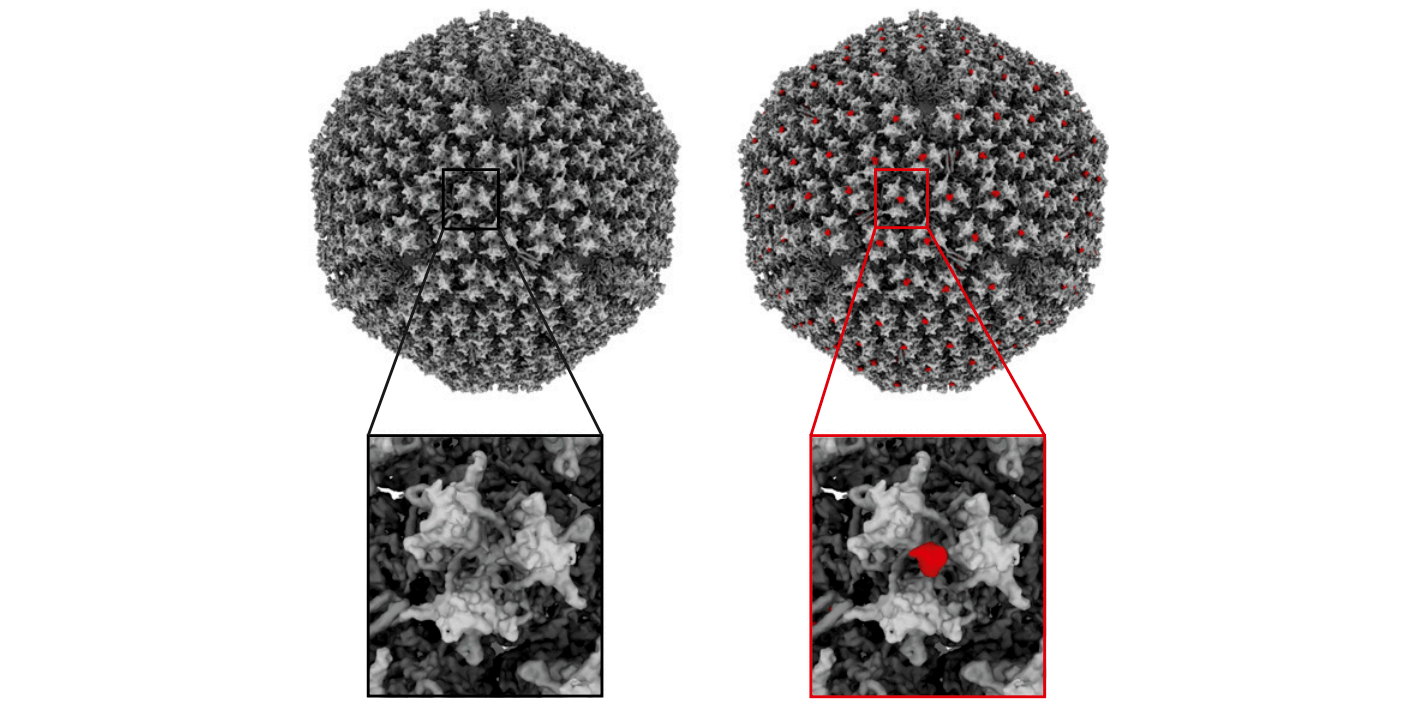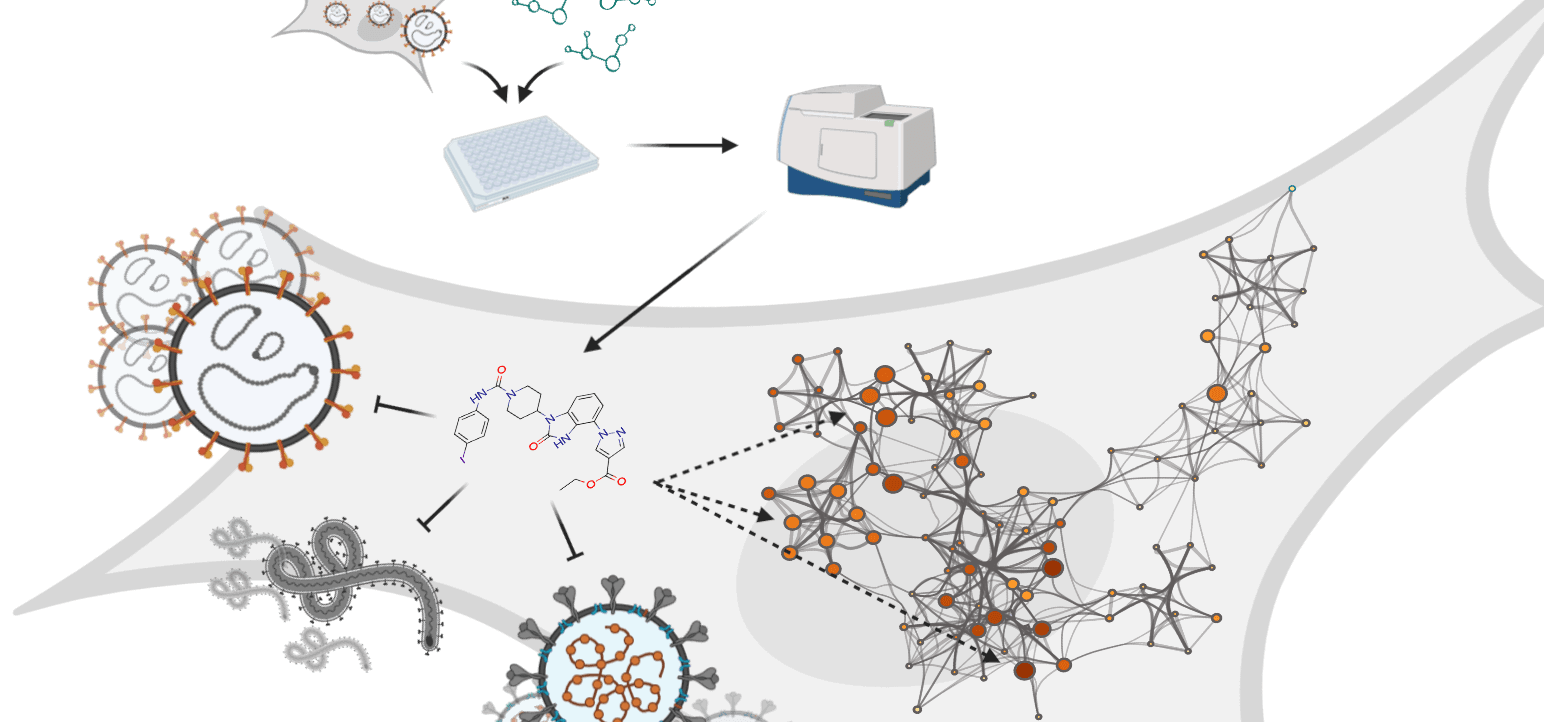Neanderthal gene protecting against severe COVID-19 could be potential new drug target
Published: 2021-03-10

The SARS-CoV-2 virus effects on global health causes an unprecedented challenge for healthcare and warrants rapid development of both drug therapies and drug repurposing. Today drug therapies for treatment of patients with severe COVID-19 is limited to dexamethasone therapy in oxygen-dependent patients, a number of drugs under restricted licensing, and drugs undergoing clinical trials. Lack of available therapies for COVID-19 highlights the importance of rapid development of disease-specific therapies aimed at biological targets to reduce morbidity and mortality. Large proteomics efforts, in combination with human genetics information, have been used to identify possible biological targets for future drug development.
A recently published Nature Medicine article (first authors: Sirui Zhou, Guillaume Butler-Laporte, Tomoko Nakanishi) identified circulating proteins influencing COVID-19 susceptibility and severity. The study was carried out by an international research collaboration of researchers including Swedish researchers Michael Hultström, Robert Frithiof, and Miklós Lipcsey from Uppsala University, Hugo Zeberg from Karolinska Institute, and Johan Normark and Elin Thysell from Umeå University.
The researchers used the so called two-sample Mendelian randomization (MR) study, a genetic epidemiology method which uses genetic variants as instrumental variables to test the effect of an exposure on an outcome, in this case the protein levels on COVID-19 outcomes. Genetic determinants of circulating protein levels were obtained from six large proteomic GWASs of individuals of European ancestry. Using the two-sample MR study, the researchers rapidly scanned hundreds of circulating proteins while reducing bias, reverse causation and confounding.
The researcher identified that three circulating proteins OAS1, ABO, and IL10RB affect COVID-19 outcomes. Further analysis showed an association between OAS1 levels (exposure) and three outcomes: reduced COVID-19 death or ventilation (OR = 0.54, p-value = 7 × 10-8), hospitalization (OR = 0.61, p-value = 8 × 10-8), and COVID-19 disease susceptibility (OR = 0.78, p-value = 8 × 10-6). In addition, one of two isoforms of OAS1 (p42 and p46) p46 was associated with reduced odds of more severe COVID-19 outcomes: COVID-19 disease susceptibility (OR = 0.29, p-value = 4.1 × 10−6 for COVID-19, hospitalizations OR = 0.09, p-value = 2.0 × 10−8, and severe COVID-19 OR = 0.05, 0.02, p-value = 3.1 × 10−9. The results indicate that individuals with the OAS1 isoform p46 have lower risk of COVID-19 disease and also lower risk of severe outcome if they contract the disease.
Previous research has described a gene flow from Neandertals at the gene locus where the OAS1 isoform is located. This part of the genome from the Neandertals has been inherited by one in three individuals with European ancestry. Zeberg and Pääbo (2020, see our previous data highlight) recently published an article that suggested certain haplotypes may contribute to COVID-19 risk and severe outcome of COVID-19 infection.
“It is especially exciting that there are already drugs that have an effect on the expression of OAS1 that may be repurposed. This possibility to repurpose these drugs for use in treating COVID-19 is now underway in collaboration with the pharmaceutical industry.” says prof. Michael Hultström from Uppsala University, one of the researchers that carried out the study.
The study by Zhou, Butler-Laporte, Nakanishi, and colleagues is an example of work that greatly benefited from re-use of already existing data that was either made publicly available or shared with them. The researchers used existing data from a number of large-scale genome-wide association studies (references 15-20 in the published article); the results of meta-analyses based on the data from the COVID-19 Host Genetics Intitiative; associations between circulating proteins and diseases, traits, and protein levels as catalogued in PhenoScanner; tissue-specific gene expression and regulation data made available through the GTEx project; protein levels in healthy and infected patients from the biobank Biobanque Quebecoise de la COVID- 19 cohort (see also this page with information on data access at BQC19).
In summary, Zhou, Butler-Laporte, Nakanishi, and colleagues suggest that results from the MR study and a case-control study show that increased levels of the p46 isoform of OAS1 protect against COVID-19 adverse outcomes, i.e., hospitalisations, susceptibility, and severe disease. The researchers highlight that OAS1 has plausible biological activity against SARS-CoV-2. Therefore, drug repurposing of available therapies known to activate OAS1 could potentially be useful for developing future COVID-19 treatments.
The study was supported by grants from the Swedish Research Council (2014-02569) and the SciLifeLab/KAW National COVID-19 Research Program Project grant (KAW 2020.0182). In addition, a many international foundations contributed to the funding of the work , i.e., The Canadian Foundation for Innovation (CFI), the NIH Foundation, Cancer Research UK, Genome Québec, the Public Health Agency of Canada, the McGill Interdisciplinary Initiative in Infection and Immunity and the Fonds de Recherche Québec Santé (FRQS), Welcome Trust, the European Union, the National Institute for Health Research-funded BioResource and the Clinical Research Facility and Biomedical Research Centre based at Guy’s and St. Thomas’ NHS Foundation Trust in partnership with King’s College London.
Article
DOI: 10.1038/s41591-021-01281-1
Zhou, S., Butler-Laporte, G., Nakanishi, T., Morrison, D. R., Afilalo, J., Afilalo, M., Laurent, L., Pietzner, M., Kerrison, N., Zhao, K., Brunet-Ratnasingham, E., Henry, D., Kimchi, N., Afrasiabi, Z., Rezk, N., Bouab, M., Petitjean, L., Guzman, C., Xue, X., Tselios, C., Vulesevic, B., Adeleye, O., Abdullah, T., Almamlouk, N., Chen, Y., Chassé, M., Durand, M., Paterson, C., Normark, J., Frithiof, R., Lipcsey, M., Hultström, M., Greenwood, C. M. T., Zeberg, H., Langenberg, C., Thysell, E., Pollak, M., Mooser, V., Forgetta, V., Kaufmann & D. E., & Richards J. B. A Neanderthal OAS1 isoform protects individuals of European ancestry against COVID-19 susceptibility and severity. Nature Medicine (2021).



